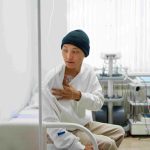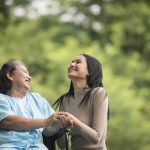Manila, Philppines – More adolescent and young adults in Southeast Asia have been diagnosed with breast cancer over the last decades, researchers warned.
Presented at the Philippine National Cancer Summit 2025, a new study published in The Lancet Regional Health – Southeast Asia revealed a sharp rise of early-onset, pre-menopausal breast cancer cases among women ages 15 to 39, with the highest number of new cases in Thailand, Singapore, and Malaysia.
The study was based on data from the following countries: Brunei, Cambodia, Lao PDR, Malaysia, Myanmar, the Philippines, Singapore, Thailand, Timor-Leste, and Vietnam.
This increase calls for strengthened breast cancer awareness, screening, and diagnosis for young women in this region, said Dr Jenny Chen from the Memorial Sloan Kettering Cancer Center at the Summit.
“Studies attribute the rise to adolescents going through menstruation earlier than before, the use of birth control pills, having children at a later age, genetics, ethnicity, as well as smoking and drinking alcohol,” said Dr Chen. “As young women are often not seen to be at risk of breast cancer, many are often screened, diagnosed, and treated too late.
The study reported the highest death rates among this group in Myanmar, Thailand, and the Philippines, and the lowest in Singapore and Timor-Leste. The number of deaths decreased significantly in Singapore, remained the same in Malaysia, Myanmar, as well as Brunei, and increased in other countries.
The authors also highlighted an estimated excess of breast cancer deaths of 2,500 over the next 10 years due to a fall in screening rates when the COVID-19 pandemic began.
“To stop these preventable deaths, we can learn from the successes of our ASEAN neighbours,” Dr Chen adds. “The decline of death rates in Singapore could have been due to their national breast cancer screening programme – BreastScreen Singapore – as well as public awareness campaigns carried out by the Government.
“Another example is Thailand with stable death rates despite the increase of new cases.
Apart from vigorous cancer education campaigns targeting underserved communities and at-risk groups, Thailand also provides health insurance schemes for the diagnosis and treatment of breast cancer, along with screening programmes carried out by public health workers and village health volunteers.”
For better cancer outcomes, the authors also recommended strengthened data collection through cancer registries, better access of clinical breast examinations and mammography for younger women, early education, and affordable treatment.
The Philippine National Cancer Summit 2025 was organised by the Philippine College of Surgeons Cancer Commission Foundation; the Cancer Coalition Philippines; and the Philippine Cancer Society Inc. The Summit’s theme “Stronger Philippines: building a resilient cancer care ecosystem” called for a resource-responsive, innovative, accessible, and effective quality cancer care.
References
Chen J, Ho FD, Feliciano EJ, Wu JF, Magsanoc-Alikpala K, Dee EC. Trends in female breast cancer among adolescent and young adults in Southeast Asia. The Lancet Regional Health-Southeast Asia. 2025 Mar 1;34.





